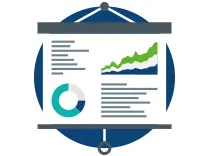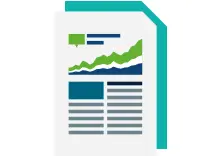
With the demise of the UK’s most complained about energy supplier, Iresa, OFGEM is getting tougher on companies that provide poor service.
In an industry like energy where the product can’t be differentiated, and customer loyalty is essentially non-existent due to the masses of competitors, customers are enticed by price and kept by service.
Iresa, which purported to be the cheapest supplier was able to onboard plenty of customers, but with 9,000 complaints per 100,000 customers, didn’t have the service chops to keep hold of them.
With the quality of customer service in the sector being such a big issue, it creates an opportunity for companies that wish to compete on service rather than price. Time and time again, customers say that they will pay more for the same product if it comes with better customer service.
The difficulties of providing great service in the energy sector
In the energy sector, there are often several companies involved in the chain of supplying a customer with their service. Each of these has a different relationship with the end-user and may be required to intervene at different times.
This makes it difficult to provide great service all the time as sometimes customers’ problems are outside of your scope to deal with. If you’re a broker or other intermediary, your relationship with customers usually begins and ends with the sales process and may only pick up again a few years later at contract renewal time.
To remain competitive, brokers must find new ways to be relevant by becoming more customer-centric, empowering customers with proactive and personalised care, and where possible having greater control over their customers’ usage experience.
Building customer relationships throughout the lifecycle
The ideal situation for a broker is to be involved with the whole customer journey, from first quote to onboarding to renewal, with little reliance on their energy supplier other than for pricing data.
This would allow them to take a proactive role and communicate with customers in between sales cycles. While they don’t want or need to take on the supplier or distributor’s customer service role, the ability to verify customers’ satisfaction with the service they are provided, and intervene if necessary, offers the promise of richer customer relationships.
By gaining richer customer data in this way, upsell and cross-sell opportunities present themselves. It’s also possible to better understand customers’ needs to craft the right pitch to them next time, as perhaps the data model shows another supplier would be a better fit.
Getting around the roadblocks with technology
Most energy brokers and intermediaries are held back by the lack of the necessary IT systems to do proactive, omnichannel customer service properly. What’s missing is a bespoke workflow and CRM system which can display pricing information, manage the contract and onboarding process, and ideally share information about customers’ service issues and usage patterns.
This would be an end-to-end tool for sales, sign up, customer service, and then renewals.
Modern CRM systems, whether they are on-premise, hosted, or cloud can make API calls to other modern systems to fetch and send almost any data that can be stored in a database.
The use of workflow tools ensures that any process can be carried out quickly and easily by following on-screen prompts. Whatever data is needed for that task is pulled from whichever database or system stores it and presented to the staff member on screen.
The ability to give staff a single user interface for accessing data and workflow processes has a huge pay off in terms of time and efficiency. As there’s no need to log into multiple systems and look up information it speeds up customer interactions and even facilitates cross-sales and up-sales as the agent has a full view of the customer.
For more information, download the whitepaper.











